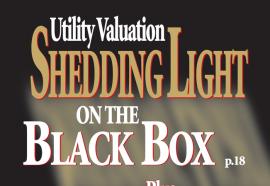Zone of Reasonableness
Coping with rising profitability, a decade after restructuring.
With a recent flurry of gas pipeline rate investigations at the Federal Energy Regulatory Commission (FERC), many pipeline owners face the prospect of having their profits scrutinized to ensure their rates are just and reasonable. Understanding FERC’s approach will help companies ensure they’re not falling outside the zone of reasonableness.




